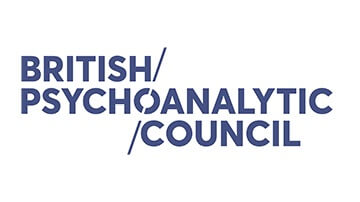
Psychodynamic psychotherapy for child and adolescent psychiatrists (M14)
Discover the UK’s only BPC-approved psychodynamic psychotherapy training for child and adolescent psychiatrists
Tailored specifically to meet the needs of practicing psychiatrists, this is the UK’s only British Psychoanalytic Council-approved training in psychodynamic psychotherapy for child and adolescent psychiatrists.
Combining theory, observation and supervision, the course develops the theoretical knowledge and therapeutic skills needed to deliver psychodynamic assessment and treatment in a range of clinical settings.
Please note: you may see the M14 course also referred to as PCTCTP006 in communications from our application system.
About this course
This course includes the following elements:
- lectures and seminars in child development and psychoanalytic theory
- infant observation
- supervised, twice-weekly clinical cases with a child and an adolescent, plus work with a parent or parents
- twice-weekly personal therapy
Psychoanalytic theory and child development research module
In the first year of study, Psychoanalytic theory lectures alternate weekly with child development research seminars.
In the Psychoanalytic theory component, you will be introduced to core concepts via lectures, seminars and seminal texts drawn primarily from S. Freud, M. Klein and D. Winnicott.
In the child development research component, you will explore attachment theory, neurobiology, developmental psychology and anthropology.
The Psychoanalytic theory component continues as a half-module in the second year of study.
Infant observation module
You will observe an infant or young child for one hour once a week for at least one year and attend a weekly seminar to discuss your observations.
Many students choose to undertake the infant observation module over a two-year period, as it can take up to six months to find an infant to observe and begin an observation.
Clinical supervision
You will see two twice-weekly psychotherapy cases – one with a child and one with an adolescent, for 1-2 years each – and need to have weekly supervision throughout, from an experienced child psychotherapist.
You will also have the option to engage in other psychodynamically-informed experiences, for example family or group therapy, attending a Group Relations Conference, or carrying out an organisational consultation, according to your own interests.
Clinical work will usually be undertaken in the setting where you work and supervised by a child psychotherapist from your Team or Trust, but if that isn’t possible it can take place at the Tavistock Clinic on an honorary contract, and supervision can be obtained privately with a senior child psychotherapist.
Personal therapy
You will undertake personal therapy at least twice a week starting 6 months before you take on your first training case and continuing for as long as your clinical cases continue.
Qualification
You will submit and pass a 10,000 word qualifying paper, combining a description of one of your cases with relevant theory. You will then be eligible for inclusion on the register of the British Psychoanalytic Council.
Who is this course for?
This course is for you if you work in the field of child and adolescent psychiatry and are interested in expanding your practice to include psychodynamic psychotherapy approaches.
Course details
In order to undertake this course, we ask that you:
- are a psychiatrist in a salaried specialty (ST4-6) training post, a consultant child and adolescent psychiatrist, or an associate or staff grade psychiatrist
- have a minimum of a core qualification in psychiatry
- have some experience of working with children, adolescents and their parents
Previous recognised experience will be accepted and will not need to be repeated. The requirements will be assessed by application form and interview.
We require two references, one from a consultant child psychiatrist who knows your clinical psychiatric work and one from a psychotherapist who has supervised you or has some understanding of your psychotherapy experience. If you are not sure who to put down as your referees, please let us know by contacting training@tavi-port.ac.uk and we will be happy to advise.
Home:
£1,170 per module, plus £700 annual enrolment fee (2025/26)
International:
£2,340 per module, plus £700 annual enrolment fee (2025/26)
If you are in a salaried speciality training post, some of your course fees may be claimed back from your deanery as an aspirational course. For more information about customising and financing your studies, please contact our admissions team, who will arrange a call with our course lead.
You will be charged course fees for each year of your course. If your course is longer than one year, the fees that you will be charged after the first year will be subject to an annual uplift, which is not normally expected to exceed 6% or the Consumer Price Index (as stated on 01 September of that academic year) if higher than 6%. At its discretion and in rare instances, the Trust may determine a figure greater than either, to reflect costs associated with the activity (e.g. assessment, teaching, administration etc.), which shall not exceed 10%. Please refer to our Terms and Conditions, and Student Fees & Refund Policy for further information.
Financial support may be available to help you fund your studies at the Tavistock and Portman NHS Foundation Trust.
Assessment
You will need to submit and pass a 10,000 word qualifying paper, combining a description of one of your cases with relevant theory. You will then be eligible for inclusion on the register of the British Psychoanalytic Council.
Attendance
In London, seminars and lectures take place during the day on Wednesdays, or on Monday and Wednesday evenings.
In addition, the same programme of seminars and lectures can also be undertaken in Belfast on Thursdays; in Leeds on Fridays; in Birmingham on Fridays and Saturdays; and in Bristol on Fridays and Saturdays.
Your regular clinical work and supervisions can be scheduled for days and times that suit you. Students who are in salaried speciality training posts often use their special interest sessions for this purpose. Consultants and Staff Grades should also have time in their job plan for CPD and special interests.
Graduates of this unique course continue their work in child and adolescent psychiatry with an increased confidence and knowledge base.
Application support and deadlines
Interested in this course but have questions before applying? Book a 1-1 session with an admissions advisor to find out more.
There are a number of important application deadlines associated with our postgraduate courses, however we encourage you to apply as early as possible, as spaces on our courses are limited and can be competitive.
Applications for this course are expected to close on Thursday 31 July 2025.
Why study with us?
This course will expand and develop your observational and therapeutic skills, while also building an in-depth knowledge of key psychoanalytic concepts – enabling you to use a psychodynamic understanding and techniques with children, adolescents and parents.
You will be able to draw on your own experiences in individual personal therapy to improve your understanding of your patients’ internal states.
Accreditations
This course is accredited by the British Psychoanalytic Council.
Testimonials
Course facilitators
Apply now
Start your application for this course.
